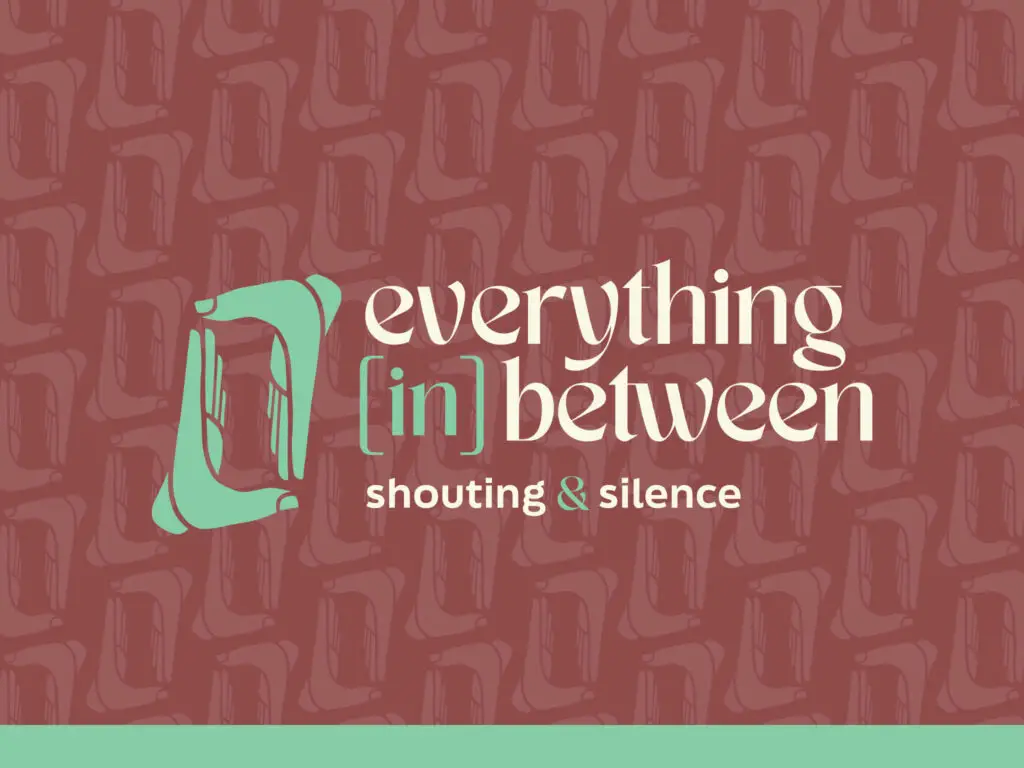Eight years ago, I stood in front of the community of faith that raised me and was ordained into ministry. It was on a Palm Sunday. And this passage – Luke’s telling of Jesus’ entry into Jerusalem – was the Scripture we read together at that ordination service. Ever since then, I’ve had the blessing, and the challenge, of preaching nearly every Palm Sunday.
Now, I know there are probably some folks here who, with enthusiastic curiosity, wonder every Christmas and Easter: “How is the lead pastor going to preach something new every year? It’s the same story, right?”
But I can guarantee you that no one is asking, “How does the associate pastor do it every year for Palm Sunday?”
And to be honest… I don’t mind. In fact, Stephanie, I’m going to look right at you and say it: I wouldn’t trade this for the world. I mean it. I won’t trade this.
Because the truth is, even though it’s the same story every year, just like Christmas and Easter, Palm Sunday keeps finding new ways to speak. This text continues to unfold something new each time I return to it. Sometimes it whispers. Sometimes it shouts. But it always says something I hadn’t heard before.
Now the Triumphant Entry is found in all four Gospels, but each give us a slightly different perspective. Like four windows into the same moment, each one framing Jesus’ entry into Jerusalem in a slightly different light.
And Luke? Luke’s version feels more grounded. More focused. More… prophetic.
There are no palm branches in Luke. No “Hosannas” either. Instead, the crowd lays down their cloaks, what they have with them, and they shout words that echo all the way back to Christmas:
“Peace in heaven, and glory in the highest heaven!”
It’s a callback to the angels in Luke 2: “Glory to God in the highest heaven!” The crowd is continuing the angels’ joyous song!
The crowd shouts with joy as Jesus rides into the city. The is another characteristic unique to the Gospel of Luke. That the crowds are shouting with joy. These aren’t the powerful or the privileged. These are the ones who’ve seen what Jesus can do: who’ve been healed, welcomed, fed, and forgiven by him. They’ve been lifted up by their Savior when the rest of the world pushed them aside. Of course they’re shouting! This parade is for them. And it’s more than a parade! It’s a declaration of faith. It’s a fulfillment of a promise.
This moment must have been filled with noise! But in between the shouts and cries of praise, there’s moments of silence pushing their way forward.
Because even as the crowds are shouting, the Pharisees try to shut it down. “Teacher, order your disciples to stop.” Stop the parade. Stop the shouting. Stop the praise.
And Jesus refuses.
He says, “If these were silent, the stones would shout out.” The stones!
And then another moment. We continue the Palm Sunday text with additional verses this year. Right after the joyful noise and public praise: Jesus turns a corner, look over the city, and laments: “If you, even you, had only recognized on this day the things that make for peace.”
He looks over the city that is about to betray him, reject him, and crucify him… and he weeps.
Because he knows. He knows how hard it is to live in the in between, in the tension of humanity. In between the shouts of praise and the horror of calvary that is to come. Jesus knows the cost of standing for peace in a world that prefers power. He knows the ache of giving everything… and still not being understood.
And maybe that’s the tension we live in too. The tension of knowing when to speak and when to listen, when to stand up and when to step back, when to shout for justice… and when to weep over what’s been lost. The tension of also giving everything… and feeling like it’s still not enough.
But I can’t help but continue to hear a thread that gently guides and navigates that tension, that holds the tension tenderly and with care and value. It’s the same thread that Jesus shares with the disciples to share with the owner of the colt: “If anyone asks you, ‘Why are you untying [the colt]?’ just say this, ‘The Lord needs it.’”
“The Lord needs it.”
That’s it. No grand explanation. No backup plan. Just those four words: “The Lord needs it.”
And whoever the owner is, he lets the colt go. Just like that. Maybe because he knew the Lord. Maybe because he trusted the disciples. Or maybe because the Spirit moved in him, and those words were enough. “The Lord needs it.”
It’s such a small phrase. But when Jesus says it, it’s not just about borrowing a young colt. It’s about how God works. It’s about trust. Partnership. Human participation in divine purpose.
And I wonder: What if that phrase is more than just a line in the story?
What if it’s the heartbeat of discipleship? What if it’s what Jesus says to every single one of us who’s ever asked: ‘What do I have to offer? What could God possibly use me for?”
“The Lord needs it.”
Because we do live in the in-between. We live in the space where speaking up can feel risky, and staying silent can feel like a betrayal. Where loving others is beautiful, and exhausting. Where doing the right thing sometimes leaves us bruised, beat down, lying on the floor wondering: Did it even matter? Where doing what is good and holy is this world can still lead us to the cross.
That’s where this story gets real.
Because Jesus doesn’t just ride into celebration. He rides into sorrow. He rides in knowing the ones who cheer are the ones who will soon walk away. He rides toward the cross. He rides to his death. And he does it anyway. Palm Sunday in Luke is not a triumphant march toward power; it’s a heartbreak. A lament. A procession toward sacrifice.
Which means maybe the Lord needs that too.
Not just the colt. Not just the parade. But the shouting. The silence. The tears. The tenderness. The truth.
The Lord needs all of it. The Lords needs the collective witness of communities.
When Jesus says, “If these were silent, the stones would shout out,” maybe he means that nothing will stop the witness. He is telling the Pharisees and all who will listen: “This moment is too important to be stopped.”
But also, because the stones didn’t shout out in the passage, maybe God doesn’t need the stones. Maybe not even today.
Because there are already communities, like this one, doing the work.
People who are loving fiercely. People who are already choosing compassion. People who are showing up. Speaking up. Lifting up. People who are living out the Gospel every single day.
Maybe God doesn’t need the stones. But then again. Maybe God is using them anyway.
Maybe the stones that shout today don’t sound like thunder or earthquake or whatever we might think stones sound like.
Maybe the stones that cry out are the moments when you are at your most defeated. When your voice is gone. When you’re exhausted. When you feel like you’ve got nothing left to offer.
And then, God shines a light onto a moment, usually it’s a person. A glimpse of grace that reflects back to you the goodness you’ve planted in the world. A reminder that your love mattered. That your faithfulness made a difference. And in that moment, when you think no one sees, God leans in close and whispers: “If for no other reason… the Lord needs you for this.”
And maybe, maybe that whisper is just another echo of what Jesus said before the parade ever started: “The Lord needs it.”
Because even when your strength is gone…
even when your hope is faint…
God is still moving.
God is still speaking.
God will not be stopped.
So today, we return to those four simple words at the start of the story: “The Lord needs it.”
The disciples didn’t need to explain it. They didn’t need to justify it. That sentiment was enough.
And maybe it still is.
Maybe that’s the phrase echoing through the stones today. Maybe that’s the whisper you’re meant to hear when your heart is heavy and your strength is gone.
“The Lord needs it.”
Not just the colt. Not just the parade. .Not just the moment of praise.
The Lord needs you.
The Lord needs your compassion. The Lord needs your courage. The Lord needs your tears. The Lord needs your faithfulness. The Lord needs your tired, aching heart that still shows up anyway.
Because this is how resurrection works. Not always in grand gestures or loud victories but in the quiet, powerful witness of people who choose to keep going. People who carry hope through heartbreak. People who believe, even when they’re not sure how.
“If for no other reason,” God whispers, “the Lord needs you for this.”
And that is enough. It’s enough to keep moving forward. It’s enough to navigate the tension of the in between. It’s enough to walk into Holy Week as our full authentic sleves. It’s enough to trust that love is still stronger than death.
Because the Lord needs it. The Lord needs you.



